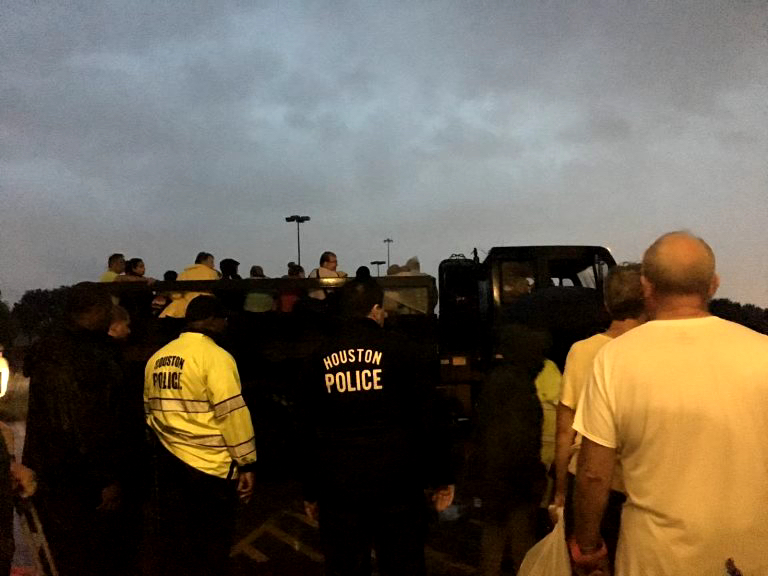Cold and scared, I gripped the side of a National Guard truck as we made the exodus from our flooded home to shelter at Houston’s George R. Brown Convention Center.
With water everywhere and not a single point of illumination, I stared out at the devastating aftermath of Hurricane Harvey.
At age 13, I was already a veteran of flooding. At 11, my Houston neighborhood saw a 100-year flood — an extreme event that was only supposed to happen once a century.
That day, school was canceled, so my sisters and I put on our rain boots and went outside to play. I was glad to have gotten this 100-year flood out of the way so young. Being a kid, I didn’t have to deal with the aftermath or understand the full impact — for me, it was just another rainy day adventure.
One year later, we experienced another 100-year flood. This time, water got into the engine of our red Ford Focus, making it unusable. I was upset and confused.
“Why is it called a 100-year event if it happens every year?” I asked my parents.
When Hurricane Harvey hit a year later, my dad woke me up at 5 a.m. As I stumbled out of bed, I felt water under my feet.
We moved to higher ground in our living room and placed anything we could up high where we thought the water could never reach it. But the water kept rising. I was scared for my grandparents, who lived next door. How could we transport two short elders down a street filled with over 4 feet of murky water?
Around 11 a.m., we moved to the second story of our neighbor’s house. I watched out the window as my elementary school across the street was submerged. The water kept climbing. Around 5 p.m., we were evacuated by open-air National Guard trucks.
After a restless night sleeping on cots with hundreds of people at the convention center downtown, the water subsided enough for us to leave, but we couldn’t go home. The water damage to our house was too severe. We moved into temporary housing while our home was rebuilt.
After two years, I finally got to go home. But still, I’m unable to outrun climate extremes.
Three years ago, in February 2021, a historic freeze hit Texas, knocking out the power for a week. I found myself sleeping next to my grandparents’ fireplace to stay warm.
Now, at age 20 and a college student in Greenville — one of the few places I thought might be safe from climate disasters and where I had hoped to settle down for the long term — I have witnessed this area become devastated by a hurricane, the likes of which it has never experienced.
Things are bad now, but they’ll worsen for future generations. Burning fossil fuels releases greenhouse gases like carbon dioxide and methane, trapping heat in the atmosphere and causing global warming, which intensifies extreme weather events.
Many people today are facing rising floods, droughts, wildfires and crop failures due to climate change, and scientists predict these events will increase.
Realizing the severity of climate change motivated me to take action, leading me to intern with the nonprofit Citizens’ Climate Lobby (CCL) last year, where I learned to advocate for a future where all elected officials enact laws holding corporate polluters accountable.
My experience at CCL showed me the importance of being a climate voter in 2024, supporting candidates with effective solutions for reducing pollution. I’ve also made it my goal to share what this means with others through the Environmental Action Group (EAG) and as an Eco-Rep at Furman.
You can create change in your community by getting involved with organizations such as Citizens’ Climate Lobby, educating the next generation with ClimateScience, or joining groups like EAG on campus. Vote with climate change in mind, and help friends and family do the same! The Climate GOAT website offers tips for discussing climate-focused voting, including scripts and training for different situations. Every effort counts.
When young people like me feel unheard and give up, whether by not sharing our concerns with leaders or by not voting, we fail to hold our members of Congress accountable, leading them to make decisions that don’t reflect our needs or interests without facing consequences.
We have to do something about it now. Later is too late.



































